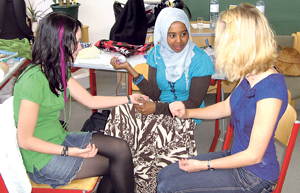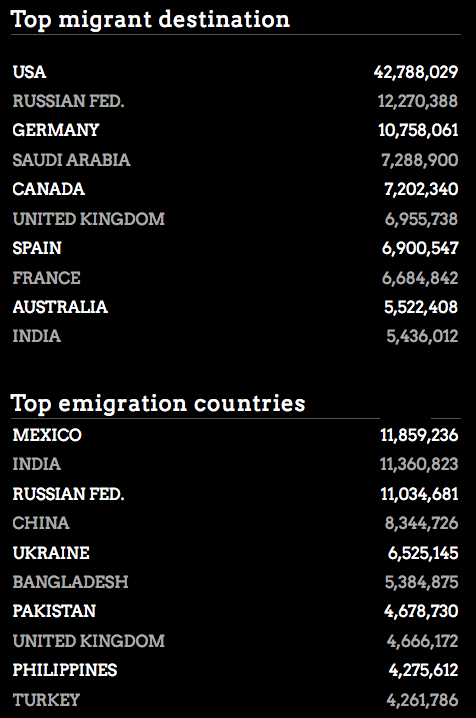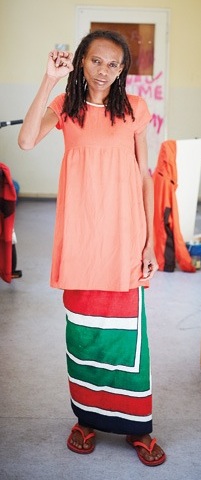A court process in Brandenburg went south when two Kenyan asylum seekers caused confusion by giving conflicting accounts to a case and making accusations of being bribed.
The court process started like any other sexual assault process. It was the perpetrator’s word against the victim’s, well until the victim who is a Kenyan brought along a fellow Kenyan to support her side of the story.
A 60 year old German locksmith identified as Heinz S. was brought before the Schöffengericht in Brandenburg an der Havel, accused of having sexually assaulted a Kenyan asylum seeker, the 41 year old, Maggie W. on 27th July 2012.
According to Heinz who is also married and was accompanied by his wife to court during the two day trial, “I made a mistake by cheating on my wife, but that was the only mistake I made”. Heinz told the court he had had a consensual sexual relationship with Maggie W. and they would meet up on Friday afternoons. He would pick up Maggie on her way home and they would drive to different locations where they would have sexual encounters. He also told the court that he paid for each of the encounters, either in cash ranging from €20-50 or in goods including wine, fruits or sweets.
On 27th July however, the afternoon plans didn’t go as planned. Maggie came along with a friend to Edeka where they usually met. Although she entered the car along, she wasn’t interested in laying on the blanket when they got to their hiding place. She requested they have sex in the bushes, “like they do it where she comes from”. After sex, she had no interested in getting into the car but instead called a friend with whom she spoke to in Kiswahili. Soon after, she escaped into the forest, leaving Heinz behind. Convinced that Maggie had set him up and would go to the police, he went directly to the police and reported himself.
Maggie agreed with the most part of this account, but added that Heinz had threatened her and forced her to go with him. She told the court that Heinz held a knife to her chest, tore her blouse, hit her phone from her hand before pushing her on the forest floor and forcing himself on her. The police agreed to her account as they found her stressed, agitated and scared in the forest.
Until then the process was going well, then Maggie’s friend, Esther M. was called in to give her account of what happened. Maggie had allegedly called Esther after the incident and it was Esther who had informed the police of where to find Maggie. Esther told the court of how she had comforted her weeping girlfriend and even cried with her, partly because she had once been raped in Kenya herself.
Then came the twist, Esther shouted at Maggie demanding that she should stop crying and lying to the court. According to Esther, Maggie had thought up the accusations because Heinz was not paying well for her services. Moreover, Maggie was jealous after finding out that Heinz had a fetish for African girls and had had affairs with 5-6 other African girls in the asylum home.
It also later emerged that Esther and Maggie were no longer friends. Maggie had bribe Esther regularly with “gifts” to ensure she kept to her story line, but Maggie had gone back on her promise thus the ridge between the two women.
It’s no surprise that the judge and the two lay people presiding the case threw it out and declared Heinz innocent. The judge, Susanne Götsche, in her judgement said Maggie’s account wasn’t convincing. Unlike many sexual assault victims, Maggie didn’t cry when she recounted her incident with Heinz but she did when she recounted another sexual assault she underwent earlier. “If Mr. S actually did violate Miss W. then he has his conscience to answer to.” She went further to accuse Maggie of having staged the whole incident in front of her fiancé and friend Esther.
Luckily, the process had been brought to a Schöffengericht. Unlike the usual courts, the Schöffengericht is presided over by volunteers who do not necessarily have to be professional lawyers or judges. The ruling in such a court usually depends more on who is more believable rather than on what the law states. Although the presiding judge in this case is a professional judge from the Amtsgericht (District Court) Maggie and her friend Esther are unlikely to be charged with perjury (lying to the court). Perjury (in German Meineid) can result to anything between 6months and 5years imprisonment § 154 StGB.
The Women in Exile organisation that operates in Berlin and Brandenburg has come out declaring the ruling unfair. They have accused the system of favouring the perpetrator for being white while discrediting the victim for being a poor black asylum seeker.











